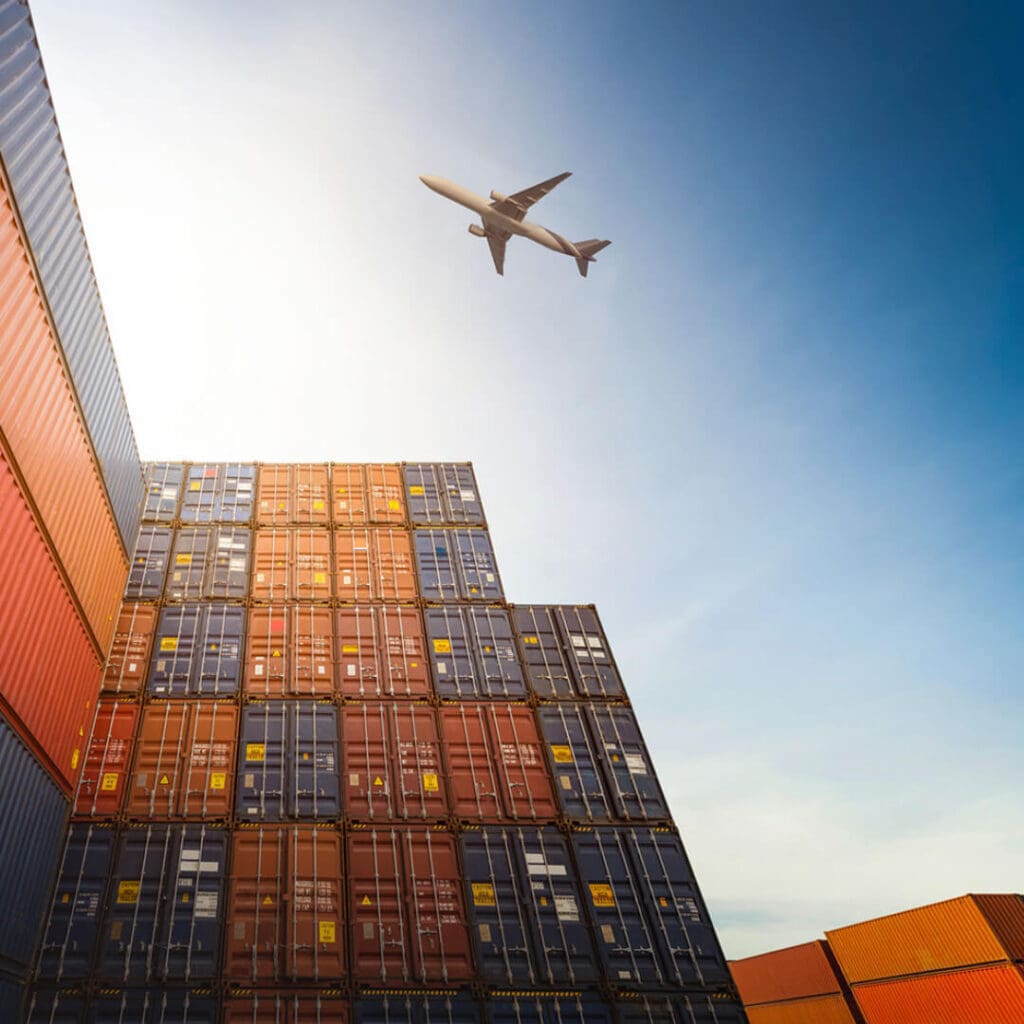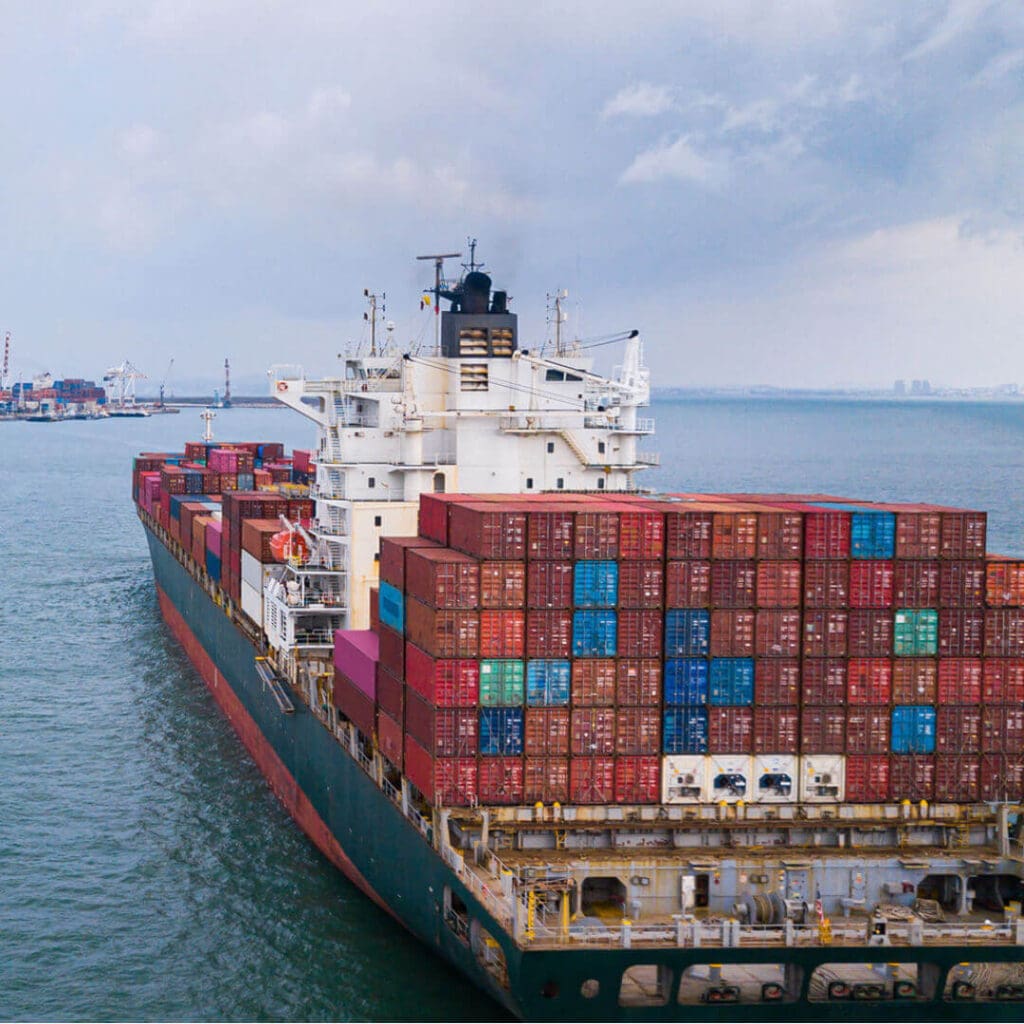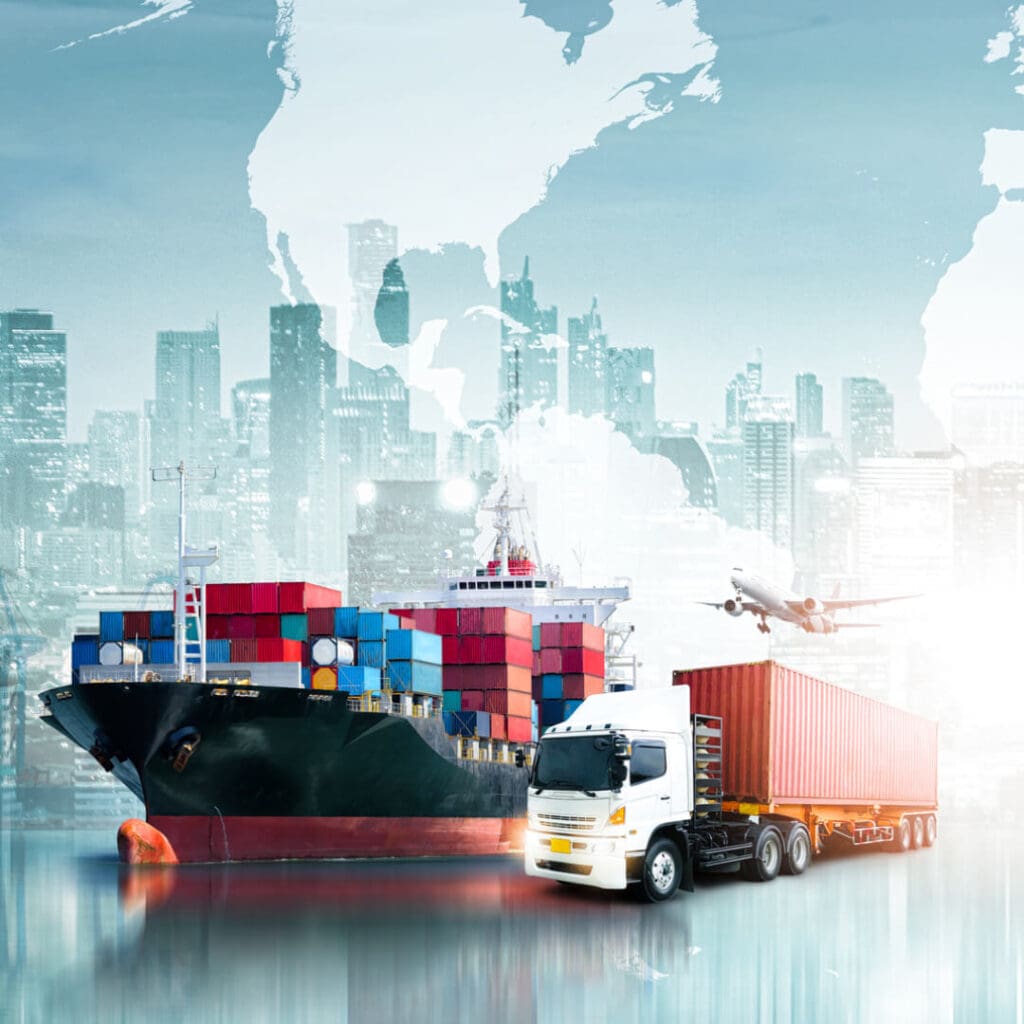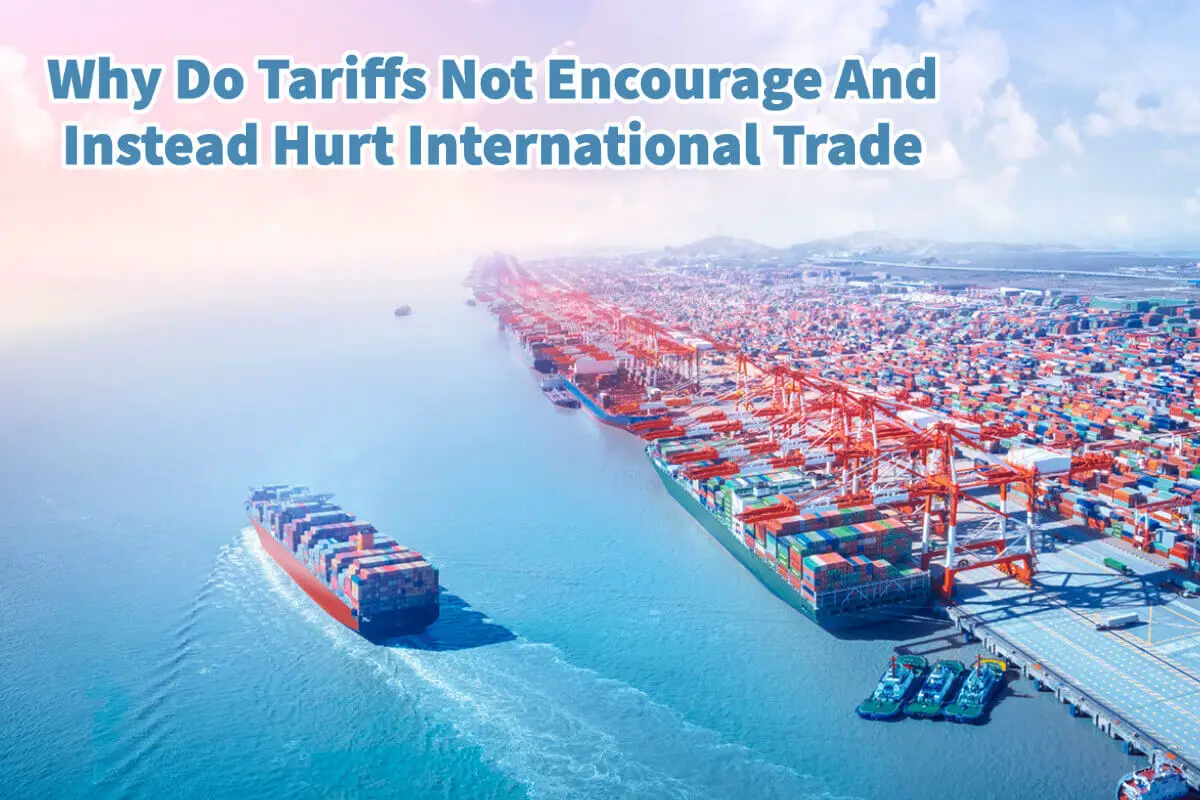International trade has been the backbone of the global economy for centuries. It allows countries to specialize in producing goods and services where they have a comparative advantage and allows them to trade with other nations for goods and services they need.
In recent years, many countries, including the United States, have placed tariffs on certain products from certain countries. China has long been one of those countries that has had many tariffs placed on them. Most countries will impose import tariffs to protect their domestic industries from foreign competition.
Table of Contents
- 11 Ways Tariffs Hurt International Trade
- Tariffs Increase The Price Of Imported Goods
- Tariffs Decrease The Number Of Imported Goods
- Tariffs Decrease The Quantity Of Exported Goods
- Tariffs Decreases Competition
- Tariffs Decrease Efficiency
- Tariffs Lead To Trade Wars
- Tariffs Hurt Small Businesses
- Tariffs Hurt Consumers
- Tariffs Hurt The Global Economy
- Tariffs Do Not Address The Real Issues
- Tariffs Do Not Create Jobs
- The Consumer Ultimately Pays For Tariffs
- There Are Alternatives To Tariffs
- Tariffs as Barriers to Free Trade: Implications for the Global Economy
- Frequently Asked Question
- Related Content
11 Ways Tariffs Hurt International Trade
Placing tariffs on imported products has been a popular protectionism and political move in many countries. Many see tariffs as a way to help protect their domestic industries from foreign competition.

While this might seem like a good idea, it does more harm than good. Read on as we will explore why tariffs do not encourage international trade and instead hurt it.
Tariffs Increase The Price Of Imported Goods
When a country imposes tariffs on imports, it makes the imported goods more expensive for consumers. This can lead to decreased demand for imported goods and increased demand for domestic goods.
However, domestic goods will also become more expensive as their demand increases. And often, even with the traffic in place, domestic goods are still more expensive than imported goods.
Tariffs Decrease The Number Of Imported Goods
When the price of imported goods increases due to tariffs, the quantity demanded decreases. This means that the volume of trade between countries decreases, leading to a decrease in international trade.
Tariffs can mean that some imported goods become too expensive to purchase.
Tariffs Decrease The Quantity Of Exported Goods
When a country imposes tariffs on imports, the exporting country may retaliate by imposing tariffs on its exports. This leads to a decrease in trade volume between the two countries, decreasing the quantity of exported goods.
Tariffs Decreases Competition
Tariffs are put in place to protect domestic industries from foreign competition; this leads to a decrease in competition. Domestic industries become complacent and are not motivated to improve their products or services because they do not have to compete with foreign industries.
It can also mean that domestic enterprises that are not competitive continue to produce inferior products.

Tariffs Decrease Efficiency
Tariffs make it more expensive to import goods, leading to decreased efficiency. Domestic industries may become inefficient because they do not have to compete with foreign industries.
In the long term, domestic enterprises cannot compete to export their products.
Tariffs Lead To Trade Wars
When one country imposes tariffs on another, the other country may retaliate by also imposing tariffs. This can lead to a trade war where both countries keep increasing tariffs on each other, therefore decreasing international trade.
When tariffs are imposed, they can lead to a retaliatory response from other countries; this can create a vicious cycle where countries keep placing tariffs on each other, leading to a decrease in international trade and economic growth. Ultimately, this can hurt consumers and businesses, leading to job losses and economic stagnation.
Tariffs Hurt Small Businesses
Small businesses often rely on imports to produce or sell products. When tariffs are imposed, the cost of imported goods increases, which hurts small businesses that cannot afford to absorb the extra costs.
I have seen this many times in my own business. The smaller businesses get hurt by the tariffs and, in many cases, can not weather the tariff storm.
Tariffs Hurt Consumers
When the cost of imported goods increases, consumers pay more for those goods. This reduces their purchasing power and hurts the overall economy.
This is one of the areas that many consumers do not understand. When a tariff is imposed on an imported product, the country that has the tariff does not pay the extra tariff costs, but instead the importer pays the tariffs and the importer will usually pass those costs on to the consumer.
It is the consumer that ultimately pays for all tariffs.
Tariffs Hurt The Global Economy
International trade is essential for the global economy. Tariffs hurt the global economy by reducing trade volume between countries and leading to trade wars.
Tariffs Do Not Address The Real Issues
Tariffs are often imposed to protect domestic industries from foreign competition. However, this does not address the real issues causing domestic industries to lose out to foreign industries.
The real issues could be related to inefficiencies or lack of innovation. Tariffs do not address these issues.
Tariffs Do Not Create Jobs
Tariffs are often imposed to protect domestic industries and create jobs. However, this is not always the case. When tariffs are imposed, it leads to a decrease in international trade, which can hurt domestic industries that rely on exports for their revenue.
Tariffs can lead to job losses instead of job creation. I have seen this in my industry and the tariffs on products from China.
The United States placed 25% tariffs on many Chinese-produced items. I have not seen many of those jobs return to the United States; most of them moved to other countries, such as Vietnam, India, and Indonesia.
China is still producing products that other places can not produce efficiently, but the cost of the goods is being passed to the consumers.

The Consumer Ultimately Pays For Tariffs
It is essential to note that tariffs ultimately hurt consumers. While domestic industries may benefit from tariffs, consumers pay more for the goods they consume.
Moreover, it is not always easy for industries to shift their production to another location to avoid the impact of tariffs. Global supply chains involve a complex network of factors, including access to raw materials, transportation, labor costs, and regulatory frameworks.
Moving production to another country can be expensive and time-consuming, and it may not always be feasible or desirable for businesses. In most cases, businesses will choose to pass the increased costs of tariffs on to consumers rather than move their production to another location.
There Are Alternatives To Tariffs
There are alternative ways to address the issues faced by domestic industries without resorting to tariffs. Imposing a tariff is not always the best answer, as it can hurt global trade.
Instead, governments can invest in research and development to improve the efficiency and competitiveness of domestic industries. They can also incentivize businesses to innovate and invest in new technologies.
Additionally, governments can negotiate trade agreements that address issues related to unfair competition, such as intellectual property theft and technology transfers.
Tariffs do not encourage international trade and instead hurt it. The tariffs increase the price of goods and services while decreasing the number of imported goods, decrease competition and efficiency, lead to trade wars, hurt small businesses and consumers, hurt the global economy, do not address the real issues, lead to retaliation, and do not create jobs.
Moreover, tariffs ultimately hurt consumers, as they pay more for the goods they consume, and moving production to another location is not always feasible or desirable for businesses.
We believe it is essential for governments to explore alternative ways to address the issues faced by domestic industries and promote international trade and economic growth.
Tariffs as Barriers to Free Trade: Implications for the Global Economy
In today’s interconnected world, trade plays a pivotal role in economic growth and prosperity. While the United States has historically been a proponent of free trade, there have been instances of imposing tariffs as a barrier to trade.
Read on to explore why tariffs impede free trade and delve into the numerous benefits of embracing free trade for the global economy.
Why Tariffs are Barriers to Free Trade Globally
Here are some of the reasons why tariffs are barriers to free trade.
- Increased Costs: Tariffs are essentially taxes imposed on imported goods, which raises the cost of those products for consumers. This can lead to higher prices, reducing consumers’ purchasing power.
- Trade Distortion: Tariffs distort market dynamics by favoring domestic industries over foreign competitors. This can lead to inefficiencies, as resources are allocated based on protectionist measures rather than market forces.
- Retaliation: When one country imposes tariffs, it often triggers retaliatory measures from trading partners. This can escalate into a trade war, hurting the domestic and global economies.
- Reduced Consumer Choice: Tariffs can limit the variety of products available to consumers, as higher prices and trade barriers may discourage imports.
- Slower Economic Growth: By hindering the flow of goods and services across borders, tariffs can impede economic growth, job creation, and innovation.
- Inefficiency: Tariffs can lead to inefficient resource allocation, as industries protected by tariffs may not have the same incentives to improve productivity and competitiveness.
- Global Supply Chains: Modern industries often rely on global supply chains. Tariffs disrupt these intricate networks, making production more complicated and costly.
- Income Inequality: Tariffs can disproportionately impact lower-income households, as they spend a higher proportion of their income on goods subject to tariffs.
- Uncertainty: Tariffs create uncertainty in the business environment, making it difficult for companies to plan investments and strategies.
- Undermining Diplomacy: The imposition of tariffs can strain international relations and make finding diplomatic solutions to global issues challenging.
Benefits of Free Trade for the Global Economy
Along with the barriers of tariffs to free trade, here are some of the essential benefits of free trade for the global economy.
- Economic Growth: Free trade fosters economic growth by allowing countries to specialize in producing goods and services where they have a comparative advantage.
- Lower Prices: Consumers benefit from lower-priced imports, which improve their living standards by providing access to a broader range of affordable products.
- Efficiency: Free trade encourages efficiency by promoting competition, innovation, and the efficient allocation of resources.
- Job Creation: While some jobs may be displaced in specific industries, free trade typically creates more jobs in industries where a country has a comparative advantage.
- Increased Exports: Countries that embrace free trade often experience increased exports, leading to higher revenue and economic stability.
- Fostering Peace: Economic interdependence through trade can promote peaceful relations between countries, as they have a vested interest in maintaining stable trade partnerships.
- Access to Capital: Open markets attract foreign investment, providing countries with access to much-needed capital for development.
- Consumer Choice: Free trade offers consumers a broader array of choices, driving competition and product innovation.
- Global Poverty Reduction: Free trade can help reduce poverty by facilitating economic development in poorer countries through increased trade opportunities.
- Environmental Benefits: Trade can encourage the adoption of environmentally friendly technologies and practices by exposing countries to international environmental standards.
While tariffs may be used as barriers to trade in some instances, the benefits of free trade for the global economy are substantial. Promoting open markets, reducing trade barriers, and fostering international cooperation can lead to economic growth, increased prosperity, and a more interconnected world that benefits all nations and their citizens.
Find out more about how Mondoro can help you create, develop, and manufacture excellent home decor and furniture with trade and ethical sourcing in mind – don’t hesitate to contact me, Anita. Check out my email by clicking here or become a part of our community and join our newsletter by clicking here.
Mondoro gives out a FREE Lookbook to anyone interested. You can receive a copy of our latest Lookbook by clicking here.
Listen to our Podcast called Global Trade Gal. You can find it on all major podcast platforms. Try out to listen to one of our podcasts by clicking here.
Subscribe to our Mondoro Company Limited YouTube Channel filled with great videos and information by clicking here.
Frequently Asked Question
What is a tariff?
A tariff is a tax or duty imposed by a government on imported or exported goods, typically as a percentage of their value.
Why do governments impose tariffs?
Governments impose tariffs for various reasons, such as protecting domestic industries, reducing competition from foreign goods, or generating revenue.
How do tariffs work?
Tariffs increase the price of imported goods, making them more expensive compared to domestic products, which can help protect domestic industries.
Do tariffs benefit the economy?
While tariffs can protect specific industries in the short term, they often have negative consequences for the overall economy in the long run.
How do tariffs affect consumers?
Tariffs increase the cost of imported goods, leading to higher consumer prices. This reduces their purchasing power and may limit their access to certain products.
How do tariffs impact domestic industries?
Tariffs can provide temporary protection to domestic industries by making imported goods more expensive. However, they can also lead to complacency, reduced competitiveness, and hinder innovation.
Do tariffs promote job creation?
While tariffs may protect jobs in specific industries, they can also lead to job losses in other sectors, especially those reliant on imported goods or exporting to countries affected by retaliatory tariffs.
What is the impact of tariffs on international trade?
Tariffs tend to disrupt global trade by reducing the volume of imports and exports, creating trade barriers, and causing trade disputes between countries.
Related Content
What Are The Major Benefits Of Strategic Sourcing?
Never underestimate the proper use of the strategic sourcing process in your supply chain. Strategic sourcing is a significant benefit to all stakeholders within the supply chain. Strategic sourcing forces all stakeholders to look at the supply chain strategy in detail. Strategic sourcing helps to eliminate any potential risks or problems.
You can discover more by reading What Are The Major Benefits Of Strategic Sourcing? by clicking here.
Seven-Step Strategic Sourcing Process Explained
A seven-step strategic sourcing strategy process will help companies be successful when looking to procure a product or a commodity. If companies take the time to go through each of the seven steps, this will help them to ensure they are successful with their sourcing needs.
You can find out more by reading our blog Seven-Step Strategic Sourcing Process Explained by clicking here.
Product Sourcing and Strategic Sourcing Explained
Product sourcing is when you source or look to find a supplier for a product you need. Strategic sourcing is strategically sourcing products. Strategic sourcing is not about the lowest purchase price but the lowest overall cost. Product sourcing and strategic sourcing are very similar, but strategic sourcing is sourcing with a plan in place.
You can learn more by reading Product Sourcing and Strategic Sourcing Explained by clicking here.


